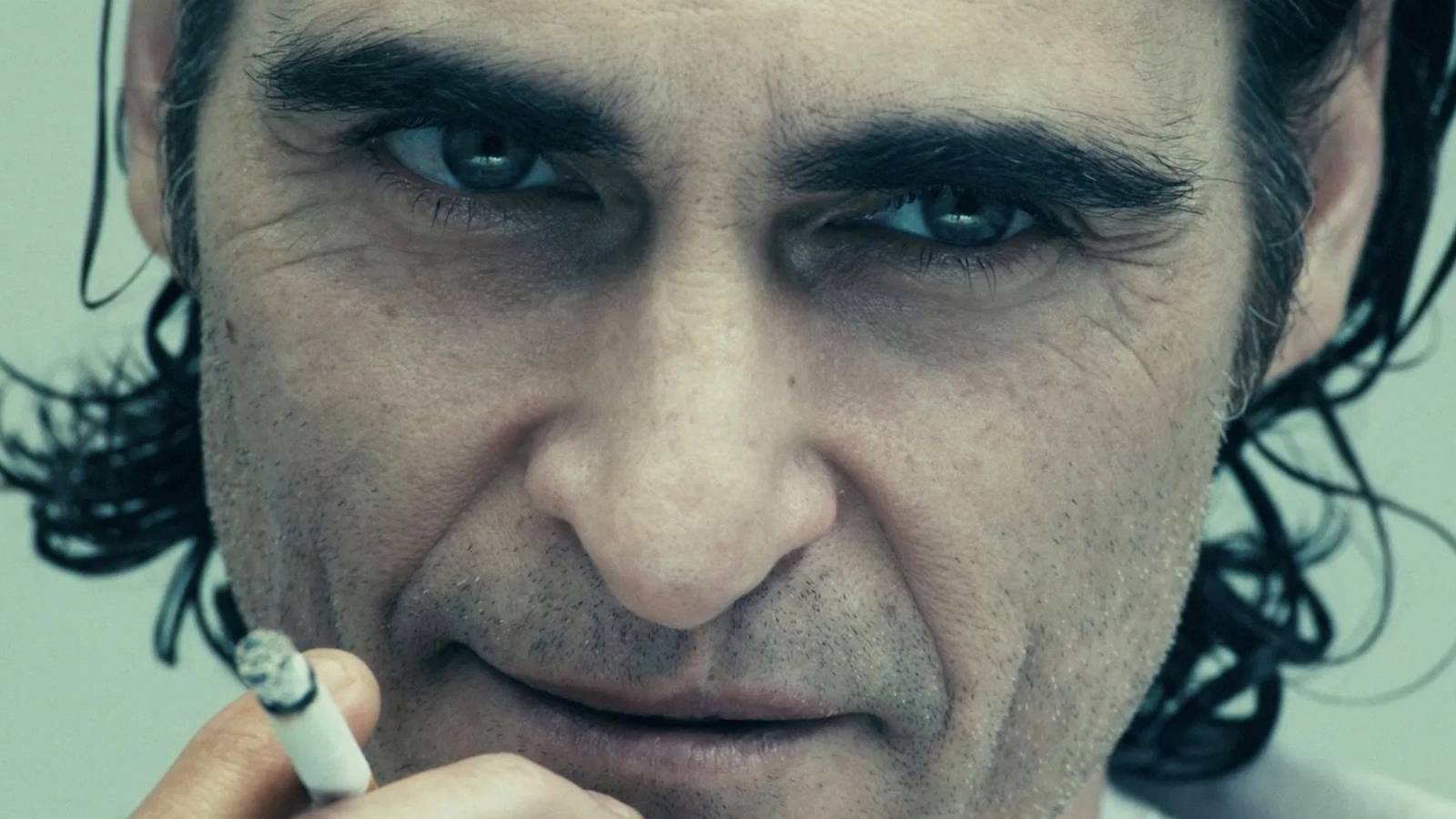Mental health is often misunderstood, especially in Hollywood. Many movies attempt to tackle the subject, but most of the time, these representations perpetuate harmful stereotypes or come across as shallow or poorly researched.
Fortunately, some films aren’t afraid to dive deep into the unfiltered reality of mental health. These films do justice to the complexities of the subject matter, but never at the cost of their characters, who are shown as multi-dimensional individuals who strive despite their struggles.
10
‘Silver Linings Playbook’ (2012)
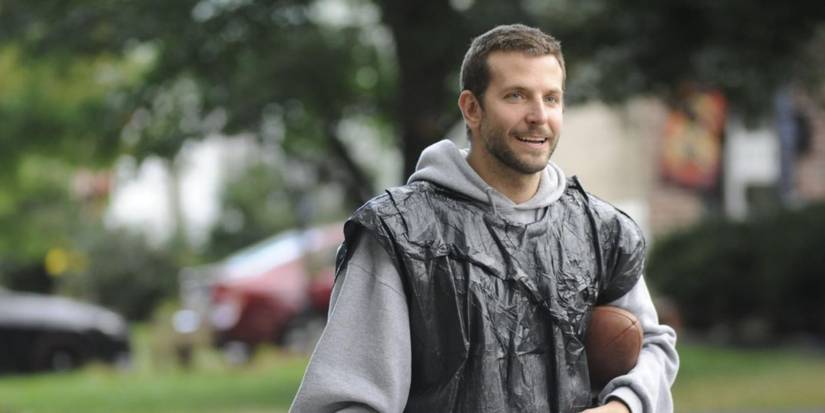
Bradley Cooper in Silver Linings Playbook
Image via The Weinstein Company
Silver Linings Playbook is a pretty bold take on mental health, but at the same time, the film never feels too preachy or on-the-nose. The romantic comedy is based on Matthew Quick’s novel of the same name and follows Pat Solitano (Bradley Cooper), who is released from a psychiatric facility after a violent episode of his bipolar disorder. Pat wants nothing more than to win back his estranged wife, but things take a turn when he ends up entering a dance competition with Tiffany (Jennifer Lawrence), who is grieving the loss of her dead husband. Obviously, Cooper and Lawrence’s chemistry is one of the standout elements of the film, and the balance between their characters’ playful dynamic, along with their more vulnerable confessions to each other, is what really pulls you in.
Both Pat and Tiffany struggle with battles of their own, and end up becoming each other’s support system in the midst of their dance practices. What I love about Silver Linings Playbook is that the film doesn’t back down from portraying the protagonists as flawed, messy individuals that you just can’t root for sometimes. However, Pat’s bipolar disorder is portrayed with such realism that you slowly begin to understand why he does the things he does. The film doesn’t dive deep into the specifics of his condition in a medical sense, but it does a great job of capturing the emotional turmoil that comes with it. The scene where Pat refuses to take his medication will resonate with anyone who has struggled with mental health, and these subtle moments are what really drive the point of the story home.
9
‘Rain Man’ (1988)
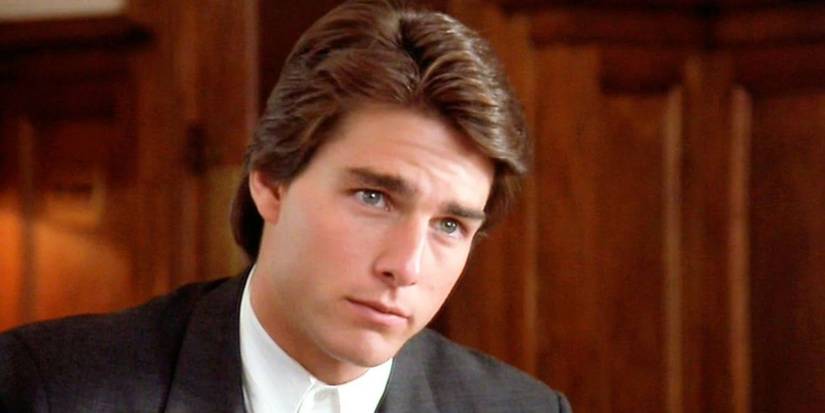
Tom Cruise in ‘Rain Man’
Image via United Artists
Rain Man is a groundbreaking film for several reasons. For starters, the film premiered at a time when there was little to no representation of the disorder in mainstream media. The road comedy-drama is directed by Barry Levinson and centers on the relationship between Charlie Babbitt (Tom Cruise) and his estranged, autistic brother Raymond (Dustin Hoffman). When Charlie’s father passes away, he discovers that Raymond, who has lived in a psychiatric institution for most of his life, is the beneficiary of his father’s estate. This results in Charlie seeking custody of his brother to gain access to the inheritance. However, the two brothers begin to form a bond as they travel across the country together.
On the surface, Raymond came off as a strange man with extraordinary abilities, like his sharp memory. However, we slowly learn how he struggles to interact with people, or how routine changes and sensory overload affect him. The heart of the story is how Charlie begins to change the way he views his brother and understands his condition more deeply than ever before. In a way, Charlie’s arc mirrors the learning process so many people go through when they encounter someone with a developmental disorder. This one is a must-watch, not only because it is an insightful look at autism, but it’s also a reminder that people with the condition are capable of love, vulnerability, and growth.
8
‘Girl, Interrupted’ (1999)
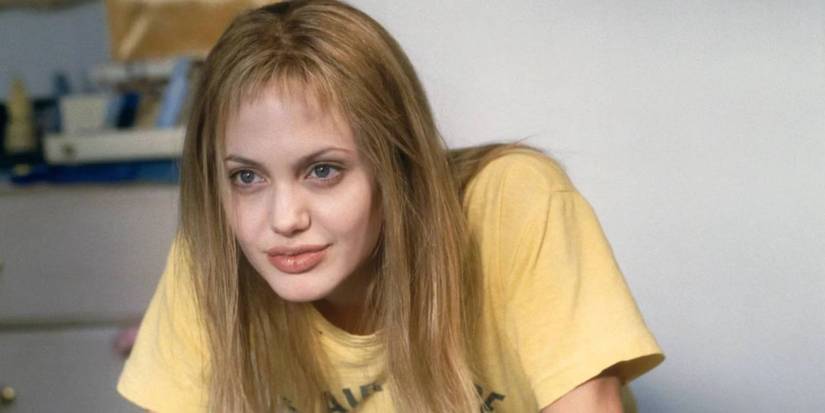
Angelina Jolie in ‘Girl Interrupted’
Image via Columbia Pictures
Much like Rain Man, Girl, Interrupted was also pretty revolutionary for its portrayal of mental health. The film is based on the 1993 memoir by Susanna Kaysen and explores the lives of several young women in a psychiatric hospital in the 1960s. Girl, Interrupted stars Winona Ryder as Susanna Kaysen, a young woman who is institutionalized after a suicide attempt and is trying to find herself all over again. Ryder does a great job in her portrayal of Susanna’s journey, which is both heartbreaking and relatable.
Angelina Jolie, though, deserves a special mention for taking on the role of sociopath Lisa Rowe, without ever making the character feel caricaturish or pure evil. I really appreciate the film’s focus on showing mental illness for how messy and raw it is, while also centering the human side of all the characters, rather than reducing them to their diagnosis. If you want a masterclass in how mentally ill individuals navigate life, relationships, and personal growth, Girl, Interrupted has to be the next film you watch. Brittany Murphy, Clea DuVall, Elisabeth Moss, and Jared Leto, among others, round out the film’s brilliant ensemble cast and deliver layered, complex performances that will stay with you long after the climax.
7
‘A Star is Born’ (2018)
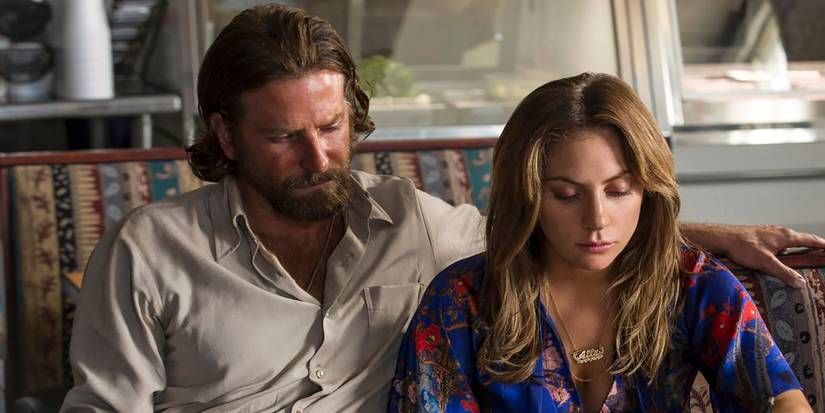
Bradley Cooper and Lady Gaga sitting down in ‘A Star is Born’
Image via Warner Bros. Pictures
If you look past the romance and musical aspect of Lady Gaga and Bradley Cooper’s A Star is Born, it’s not hard to see that the film is an honest exploration of mental health, addiction, and the dark side of fame. The film is directed by Cooper and is the third remake of the original 1937 romantic drama of the same name. The story follows Jackson “Jack” Maine (Cooper), a musician who is struggling with alcoholism and hearing loss, who meets Ally Campana (Gaga), a waitress who dreams of becoming a singer. Jackson helps Ally rise to stardom, but at the same time, he heads down a spiral. What starts as a love story between two passionate artists then turns into a layered portrayal of how childhood trauma and unchecked mental health struggles can completely destroy someone. The film really challenges the idea that money and success can solve everything.
I really like how the story sheds light on Jack’s addiction, not just to alcohol, but also to the validation that comes with fame. When Ally’s music starts gaining recognition, and she turns into a commercial pop star, Jack is threatened by her success, which contributes to her mental deterioration. The ending, however, is the most gut-wrenching part of the film and forces the audience to think about everything that drives a person to take their own life. When Jackson starts feeling like his personal demons are too much for Ally to bear, he removes himself from her life. However, in doing so, he completely underestimates her love for him, and that’s the most heartbreaking part of it all. A Star is Born is a tear-jerker, so make sure you go into this one with a bunch of tissues.
6
‘It’s Kind of a Funny Story’ (2010)
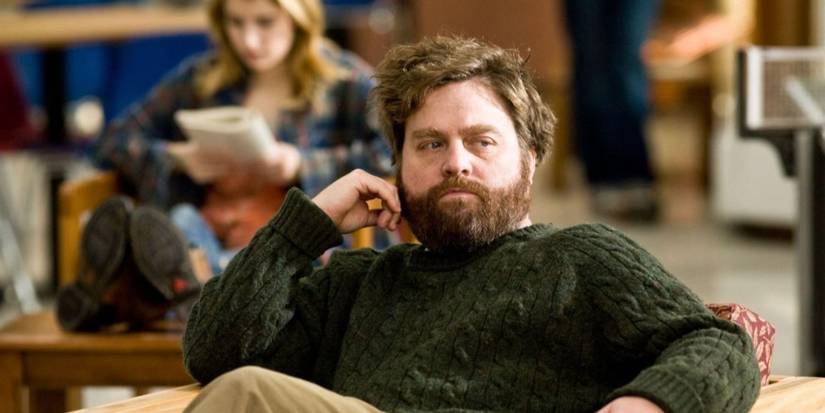
Zach Galifianakis in It’s Kind of a Funny Story
Image via Focus Features
It’s rare for teenage mental health to be addressed in mainstream media, which is why It’s Kind of a Funny Story is such an important film. The comedy-drama is based on Ned Vizzini’s semi-autobiographical novel and follows Craig Gilner (Keir Gilchrist), a young boy who attempts suicide after being overwhelmed by the pressures of high school. After his failed attempt, Craig checks himself into a hospital to get help, but since the adolescent psychiatric ward is closed, he ends up in the adult psychiatric floor. That’s where Craig interacts with other patients like Bobby (Zach Galifianakis) and another teenage girl, Noelle (Emma Roberts), who is struggling with self-harm.
It’s Kind of a Funny Story never trivializes or glorifies Craig’s struggles, and the depiction of his depression is extremely relatable for anyone who has dealt with self-esteem issues. The humor in the film balances out its darker themes, but never comes across as insensitive, which is a rare feat to achieve. You start rooting for Craig the minute he checks into the hospital and decides that he doesn’t want to be defined by his mental illness. The ending of the film is hopeful and realistic at the same time, when Craig realizes that his mental health will be an ongoing journey without a quick fix. However, he walks out of the hospital knowing that he has the support of his family and friends to get through it.
5
‘What’s Eating Gilbert Grape’ (1993)
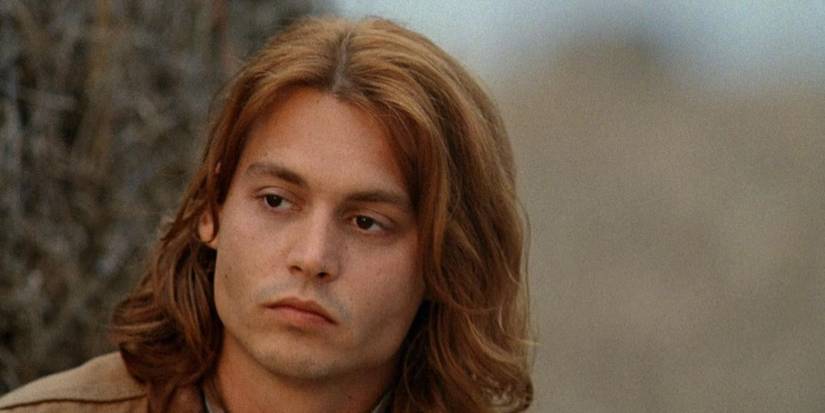
Johnny Depp in ‘What’s Eating Gilbert Grape’
Image via Paramount Pictures
What’s Eating Gilbert Grape is one of Johnny Depp’s best performances of all time. The coming-of-age stars the actor as the titular character, Gilbert Grape, who has to take care of his intellectually disabled brother, Arnie (Leonardo DiCaprio), and their morbidly obese mother, Bonnie (Darlene Cates). The film is an emotional depiction of unhealthy family dynamics, mental health, and what it takes to give up your own life for your loved ones. Gilbert spends his entire day caring for Arnie, who is about to turn 18 and has started engaging in risky behaviour, which only adds to his elder brother’s stress. Gilbert’s life takes a turn when he sparks a romance with Becky (Juliette Lewis), who is new to town.
The film is critically acclaimed for its in-depth portrayal of a young man struggling with the weight of family responsibility. I appreciate that Gilbert is not just shown to be a caretaker, and that he has desires, frustrations, and emotional needs of his own. Despite that, though, his relationship with his brother is one of the most heartwarming parts of the film. You also have to appreciate the film for its exploration of obesity as a mental health issue and the grace it gives to he subject. Bonnie is one of my favorite characters in the film because she stands as the representation of depression, grief, and emotional isolation, since all of that leads her to her current state and contributes to a huge part of her family’s suffering. Considering that, Gilbert’s eventual forgiveness of his mother is one of the film’s many standout moments.
4
‘The Perks of Being a Wallflower’ (2012)
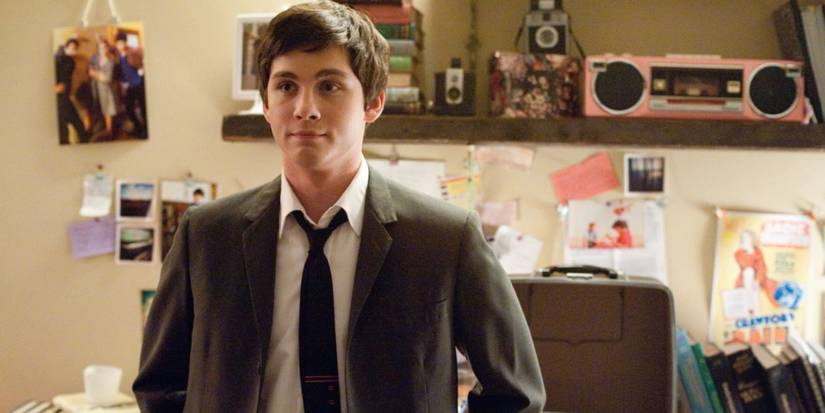
Logan Lerman in The Perks of Being a Wallflower
Image via Summit Entertainment
A lot of people might think that The Perks of Being a Wallflower is a feel-good, coming-of-age film, but you definitely need a trigger warning before tuning into this one. The Logan Lerman starrer is directed by Stephen Chbosky and is based on his 1999 novel. The story follows Charlie (Lerman), a socially anxious high school freshman who struggles with depression and past trauma. However, he starts coming out of his shell when he befriends seniors, Sam (Emma Watson) and Patrick (Ezra Miller). What I love about the film is how subtle it is in laying out the several warning signs of Charlie’s mental health crisis. From the start, you can tell that Charlie isn’t just an introvert. He tends to isolate himself and struggles to be vulnerable with others. The Perks of Being a Wallflower isn’t another film that presents mental health issues as teenage angst, and in doing so, it sets the benchmark for every other coming-of-age drama that attempts to tackle mental health.
Sam and Patrick have their own trauma, and when they share that with Charlie, he realizes that it’s okay to reach out to others for support. Charlie’s breakthrough comes in the end, when he can come to terms with painful memories that he has suppressed for a really long time, and that’s when he is finally able to move on in life. The film’s portrayal of something as intense as PTSD is extremely well done and handled with a lot of care. By the end, we know the full reality of Charlie’s suffering, but since he is given the space to heal, the audience finds closure in that as well.
3
‘A Beautiful Mind’ (2001)
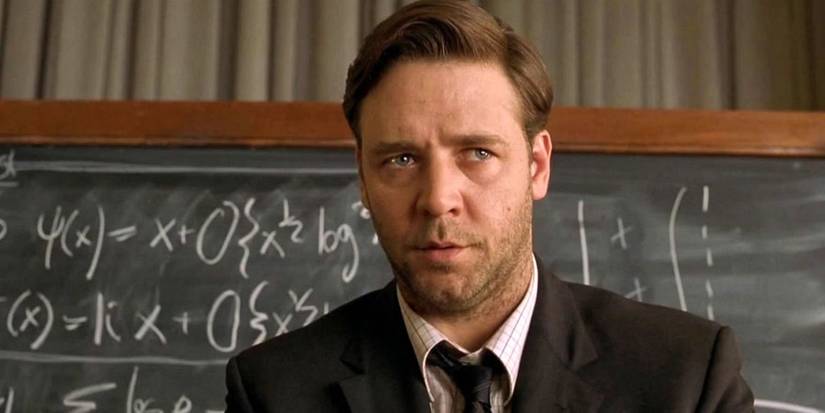
Russell Crowe as John Nash in ‘A Beautiful Mind’
Image via Universal Pictures
A Beautiful Mind is directed by Ron Howard and based on Sylvia Nasar’s biography of mathematician John Nash, a brilliant man with paranoid schizophrenia. The film features Russell Crowe as Nash, who starts as a promising student at Princeton University. However, his growing sense of paranoia, delusions, and hallucinations slowly begin to take over everything in his life. A Beautiful Mind shows how Nash’s condition affects not only his relationships with his loved ones but also his career. One of my favorite parts of the film is Nash’s dynamic with his wife, Alicia (Jennifer Connelly), who has to support him through his tumultuous journey and often be the one to bring him back to reality carefully.
The film also sheds light on how medication affects Nash’s intellectual capacity, which leads to him deciding to stop taking his antipsychotic drugs for the sake of his work. A Beautiful Mind does a great job capturing how debilitating schizophrenia is as an illness, and how it affects a patient and everyone around them. At the same time, though, as you watch Nash learning how to manage his condition and reintegrate into society, the message is as strong as ever: one’s mental health does not have to take over one’s life. Nash’s eventual success in academia and his Nobel Prize show that, even though mental illness can be a constant challenge, it doesn’t have to limit what you can achieve.
2
‘Joker’ (2019)

Joaquin Phoenix in ‘Joker’
Image via Warner Bros. Pictures
I didn’t expect a DC film to make me confront the disturbing reality of how mental illness is perceived in society, but Joker proved to be an enlightening watch. The film features Joaquin Phoenix in a career-defining role as the iconic titular villain. However, instead of seeing the character through the lens of Batman, Joker presents the other side of the story. Phoenix plays Arthur Fleck, a failed comedian in Gotham City who is clearly dealing with a lot of mental issues that go completely unnoticed by the people around him.
Arthur’s mental state slowly deteriorates throughout the story and is manifested in his uncontrollable laughter, delusions, and, in the end, a total psychotic break. The film started a conversation about how we treat our society’s most vulnerable members, and emphasizes that people suffering from mental illness have to be supported, not abandoned. The film feels suffocating in certain moments because the crushing weight of Arthur’s loneliness is too much to bear. However, that’s the entire point of the story.
1
‘Black Swan’ (2010)
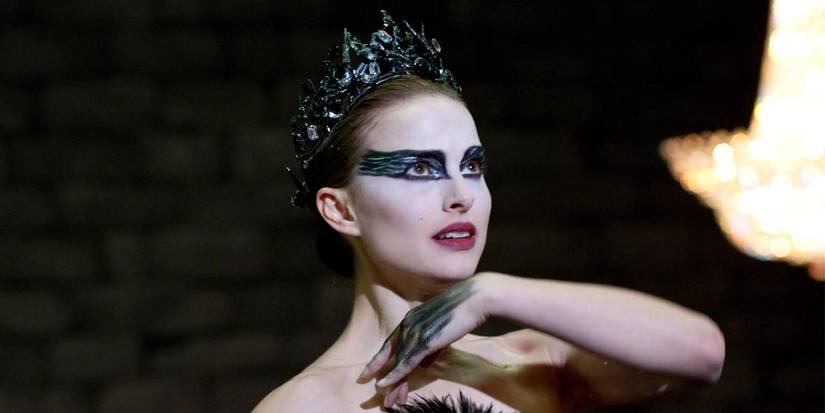
A close-up of Natalie Portman dancing in Black Swan
Image via Searchlight Pictures
If you ask me, Black Swan is one of the best portrayals of a woman’s physical and mental unraveling. The film follows Nina Sayers (Natalie Portman), a young dancer who exhibits classic signs of obsessive-compulsive disorder (OCD). Nina strives for perfection in every little aspect of her life, and her need for control ultimately leads her to a destructive breakdown. Nina’s increasing obsession with getting the dual role of the White and Black Swan in Swan Lake acts as the catalyst for the story, and her paranoia only gets worse when she meets Lily (Mila Kunis), a free-spirited, confident dancer who is assigned as Nina’s alternate for the role.
Nina slowly becomes obsessed with Lily, to the point where it’s hard for the audience to distinguish which parts of their dynamic are real and which ones are happening in Nina’s head. You never really know whether she wants Lily or wants to be Lily. In the end, we see that Nina’s downfall was completely self-manufactured, and Lily was never really her competition. The main character heads toward a total psychological collapse after her anorexia, paranoia, and OCD are exacerbated, and the ending of the film is extremely raw and unsettling. Black Swan does take a lot of creative liberties in its representation of mental illness, but it does a great job raising awareness about the dangers of the overwhelming pressure of the expectations we put on ourselves.
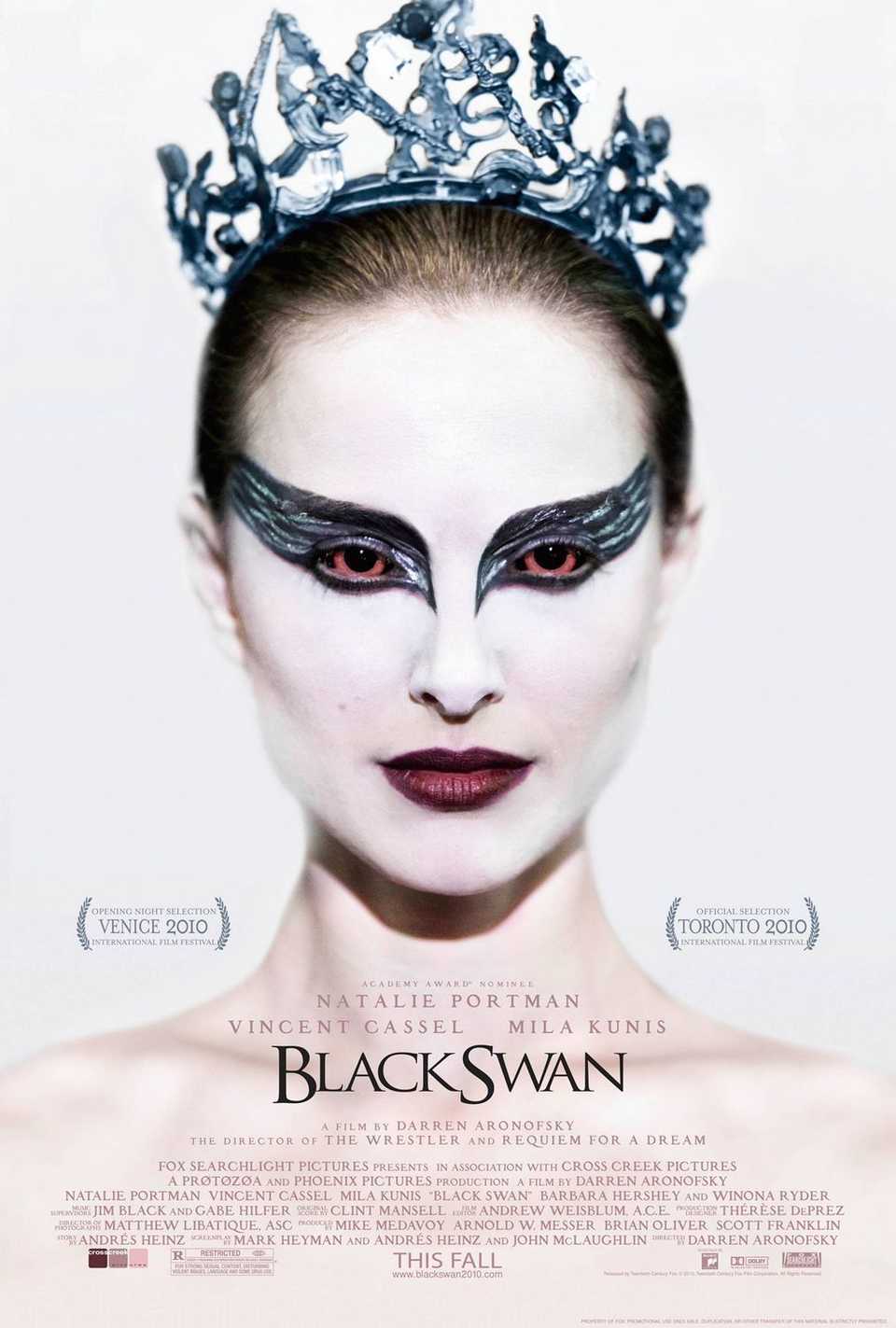
Release Date
December 3, 2010
Runtime
108 minutes
Keep Reading: 10 Best Movies About Mental Health, Ranked

